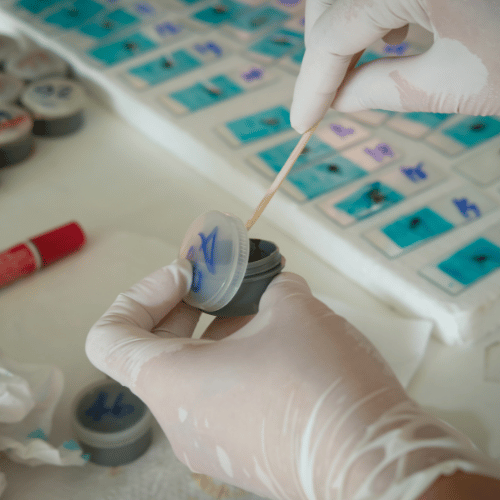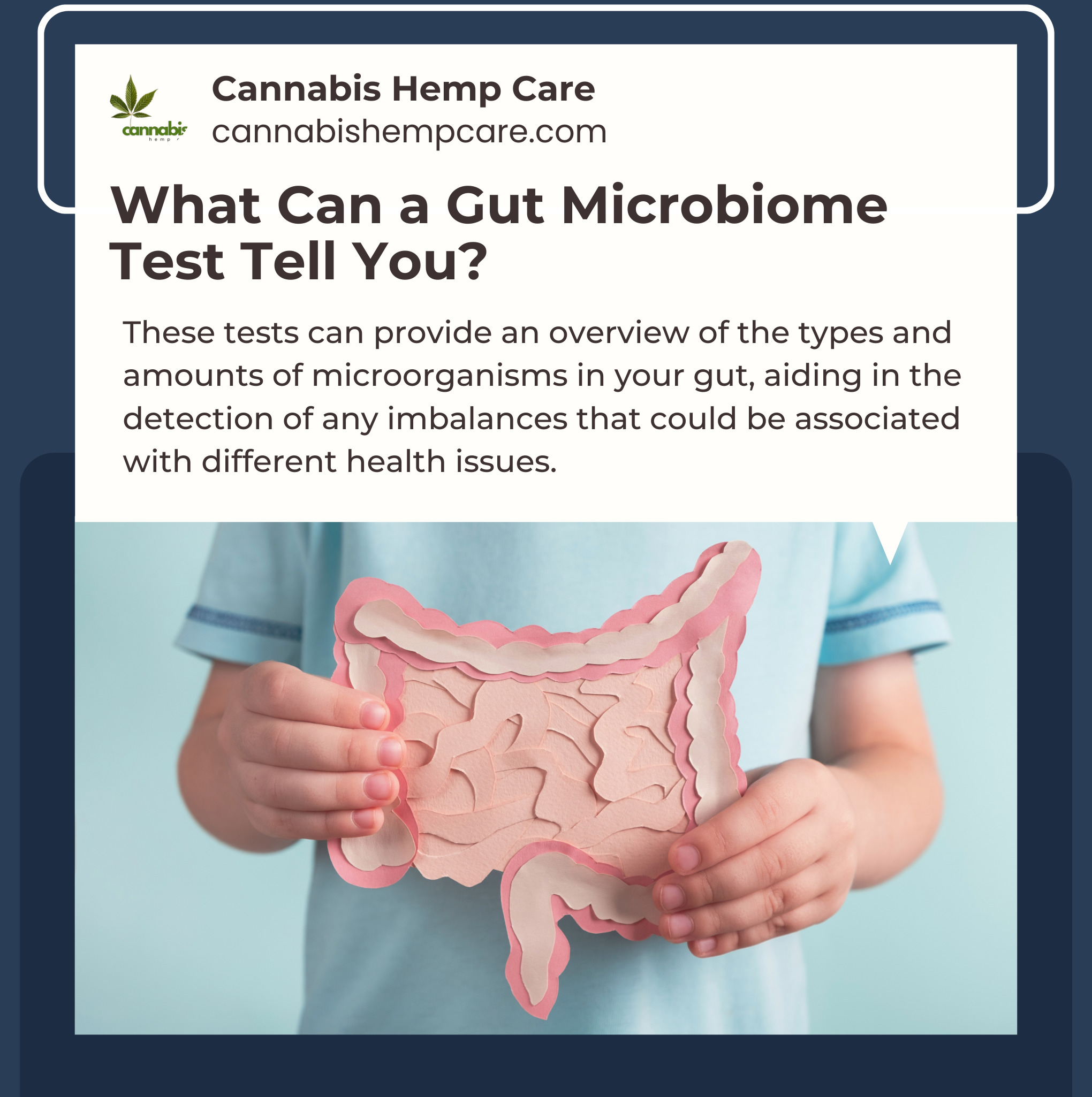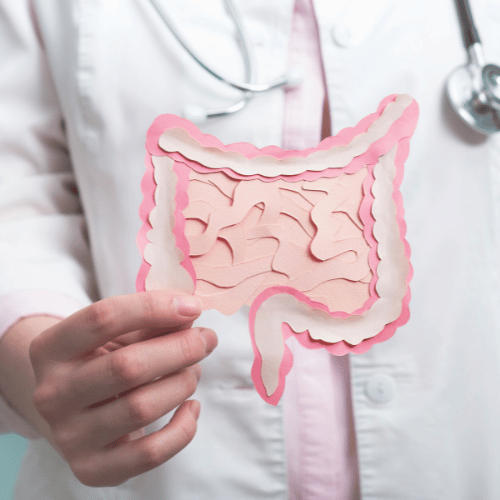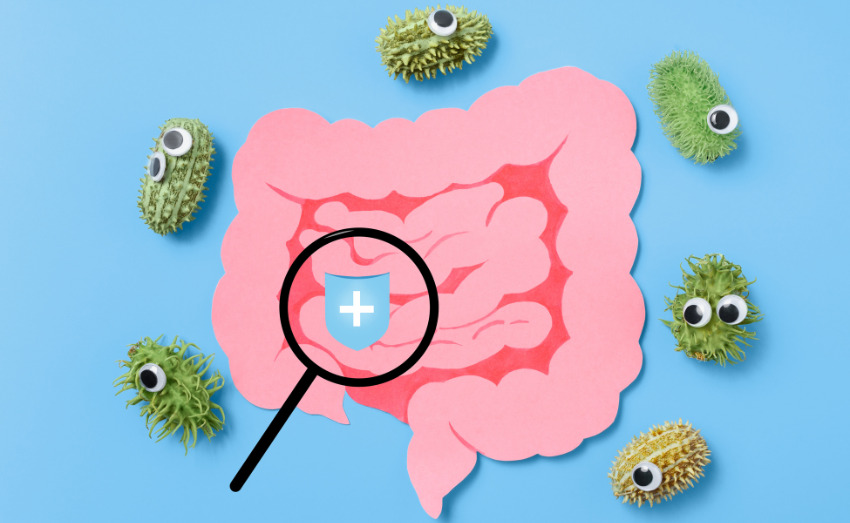Yes, it is possible to test your gut microbiome. Our bodies are home to a complex ecosystem, a significant part of which is the gut microbiome. This term refers to the multitude of microorganisms, such as bacteria, viruses, and fungi, that inhabit our digestive system1. These microbes have a profound impact on our well-being, affecting various aspects of our health, from digestion and immune function to mood and even the likelihood of certain diseases.
What is a Gut Microbiome Test?
A gut microbiome test is a procedure that examines the variety and quantity of microorganisms in your gastrointestinal (GI) tract. The test is typically performed using a stool sample. While these tests can be done in a medical setting, the availability of at-home health testing kits has made it possible for individuals to conduct these tests themselves.2
How Does a Gut Microbiome Test Work?
A gut microbiome test works by examining a stool sample that you collect. The sample is then examined to identify the different types and amounts of microbes. The primary objective of this test is to investigate the microbial composition and potential imbalances in your digestive system.
There are two main types of fecal tests that a company may provide:
- The first type looks for indicators that could suggest an illness or condition.
- The second type involves DNA extraction. By extracting DNA from the stool sample, healthcare professionals can identify the types and number of bacteria in the stool3.
However, it’s important to note that these tests should not be used for self-diagnosis. If you have any concerns about your digestive health, it’s always best to consult a healthcare professional.

Common Gut Microbiome Tests
Gut microbiome tests are performed using a stool sample and can be done either at a healthcare facility or at home. These tests aim to:
- Analyze the variety and quantity of microbes in your gut.
- Detect potential imbalances in your gastrointestinal (GI) system.
- Provide insights into possible inflammatory or autoimmune conditions like Inflammatory Bowel Disease (IBD) or celiac disease.
A typical gut microbiome test examines:
- The presence of beneficial and harmful bacteria in your gut
- Signs of potential pathogens
- Immune and inflammatory markers
- Indicators of your digestive tract’s functionality
Usually, these tests come as a take-home kit that instructs you to collect stool samples for three consecutive days.
The Gut Microbiome Testing Panel is a comprehensive test that screens for:
- Pathogenic bacteria
- Commensal bacteria
- Opportunistic pathogens
- Fungi
- Viruses
- Parasites
It’s important to note that the specific tests available may vary depending on the healthcare provider or testing service. Always consult with a healthcare professional before deciding to take a microbiome test. They can provide personalized advice based on your health history and current condition.
What Can a Gut Microbiome Test Tell You?
These tests can provide an overview of the types and amounts of microorganisms in your gut, aiding in the detection of any imbalances that could be associated with different health issues.
It’s important to understand that the diversity and quantity of bacteria in a person’s stool can vary from one sample to another. Moreover, some bacteria might stick to the gut wall and not be present in the stool sample. The tests can only confirm the presence of bacteria in the sample, not whether they are alive or dead.

Ways To Improve Gut Health
There are several ways to improve gut health:
- Ingest Probiotics and Fermented Foods: Eating probiotics and fermented foods like kimchi, kefir, kombucha, miso, sauerkraut, and tempeh can increase the beneficial bacteria in your gut.
- Consume Prebiotic Fiber: Prebiotics are nondigestible carbohydrates that probiotics feed on. Foods rich in prebiotics, such as asparagus, bananas, chicory, garlic, Jerusalem artichoke, onions, and whole grains, can help beneficial bacteria thrive in your gut.4
- Eat Less Sugar: High consumption of sugar or artificial sweeteners can lead to gut dysbiosis, a microbial imbalance in the gut. A diet rich in processed foods and added sugars can reduce the quantity and diversity of good bacteria in your gut.
- Manage Stress: Chronic high stress levels can negatively impact your gut microbiome.
- Get Enough Sleep: Insufficient or poor-quality sleep can affect your gut health adversely.
- Eat Slowly: Thoroughly chewing your food aids in complete digestion and nutrient absorption.
- Avoid Taking Antibiotics Unnecessarily: Unnecessary use of antibiotics can eliminate many of the healthy bacteria in your gut, causing an imbalance.
- Exercise Regularly: Regular physical activity contributes to a healthy digestive system.5
Always remember to consult with a healthcare professional before making any significant changes to your diet or lifestyle.

Best At-Home Gut Microbiome Testing Kits
Here are some of the best at-home gut microbiome testing kits:
- Viome Gut Intelligence Test: This kit tests your gut microbiome and provides personalized health advice and probiotic supplements to help manage your symptoms and enhance your gut health.
- Ombre (Thryve) Gut Health Test: Like Viome, Ombre provides personalized dietary and supplement plans for optimal wellness6.
- Thorne: Another option for at-home gut microbiome testing
- BIOHM Health: BIOHM specializes in tests for healthy digestion.
- Floré: Floré tailors probiotics and prebiotics based on your unique gut microbiome.
- Genova Diagnostics and GI-MAP by Diagnostic Solutions Laboratory: These are popular gut microbiome testing choices.
Remember:
It’s important to consult with a healthcare professional before deciding to take a microbiome test. They can provide personalized advice based on your health history and current condition.
Should You Get a Gut Microbiome Test?
If you’re curious about your gut health or experiencing gastrointestinal problems, a gut microbiome test could be a valuable tool. However, it’s important to seek advice from a healthcare professional before deciding to undergo such a test. They can offer personalized guidance based on your medical history and current health status.7

Conclusion
The field of gut microbiome testing is a promising area in personalized medicine. However, it’s still developing, and more studies are required to fully comprehend the impact of our gut flora on our overall well-being. It’s always advisable to consult with a healthcare professional before making any health-related decisions.
FAQs
Sources
- Falconer, Alexandra. “What Is a Microbiome Test? What Can You Learn from It?” Healthpath, 1 Apr. 2021, healthpath.com/gut-health/what-is-a-microbiome-test/. Accessed 4 Oct. 2023. ↩︎
- “What to Know about Microbiome Testing.” Www.medicalnewstoday.com, 22 Oct. 2021, www.medicalnewstoday.com/articles/microbiome-testing. Accessed 4 Oct. 2023. ↩︎
- “Microbiome Testing and What a Gut Health Test Can Tell You.” Zoe.com, zoe.com/learn/what-is-a-gut-microbiome-test. Accessed 4 Oct. 2023. ↩︎
- “10 Ways to Improve Your Gut Bacteria, Based on Science.” Healthline, 18 Nov. 2016, www.healthline.com/nutrition/improve-gut-bacteria#TOC_TITLE_HDR_6. Accessed 4 Oct. 2023. ↩︎
- Services, Department of Health & Human. “Gut Health.” Www.betterhealth.vic.gov.au, 23 Mar. 2023, www.betterhealth.vic.gov.au/health/healthyliving/gut-health. Accessed 4 Oct. 2023. ↩︎
- 7 Best At-Home Microbiome Tests – Picked by a Doctor (2023). 28 Mar. 2020, knowyourdna.com/best-at-home-microbiome-test/. Accessed 4 Oct. 2023. ↩︎
- O’Connor, Anahad. “Should You Get a Microbiome Test?” The New York Times, 13 Oct. 2021, www.nytimes.com/2021/10/13/well/live/microbiome-test.html. Accessed 4 Oct. 2023. ↩︎




































